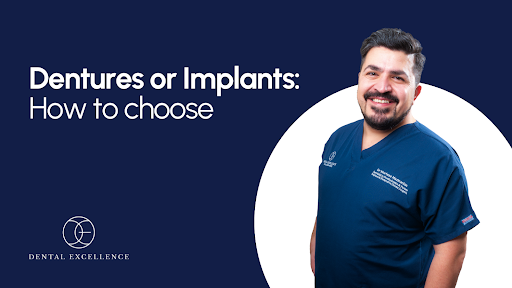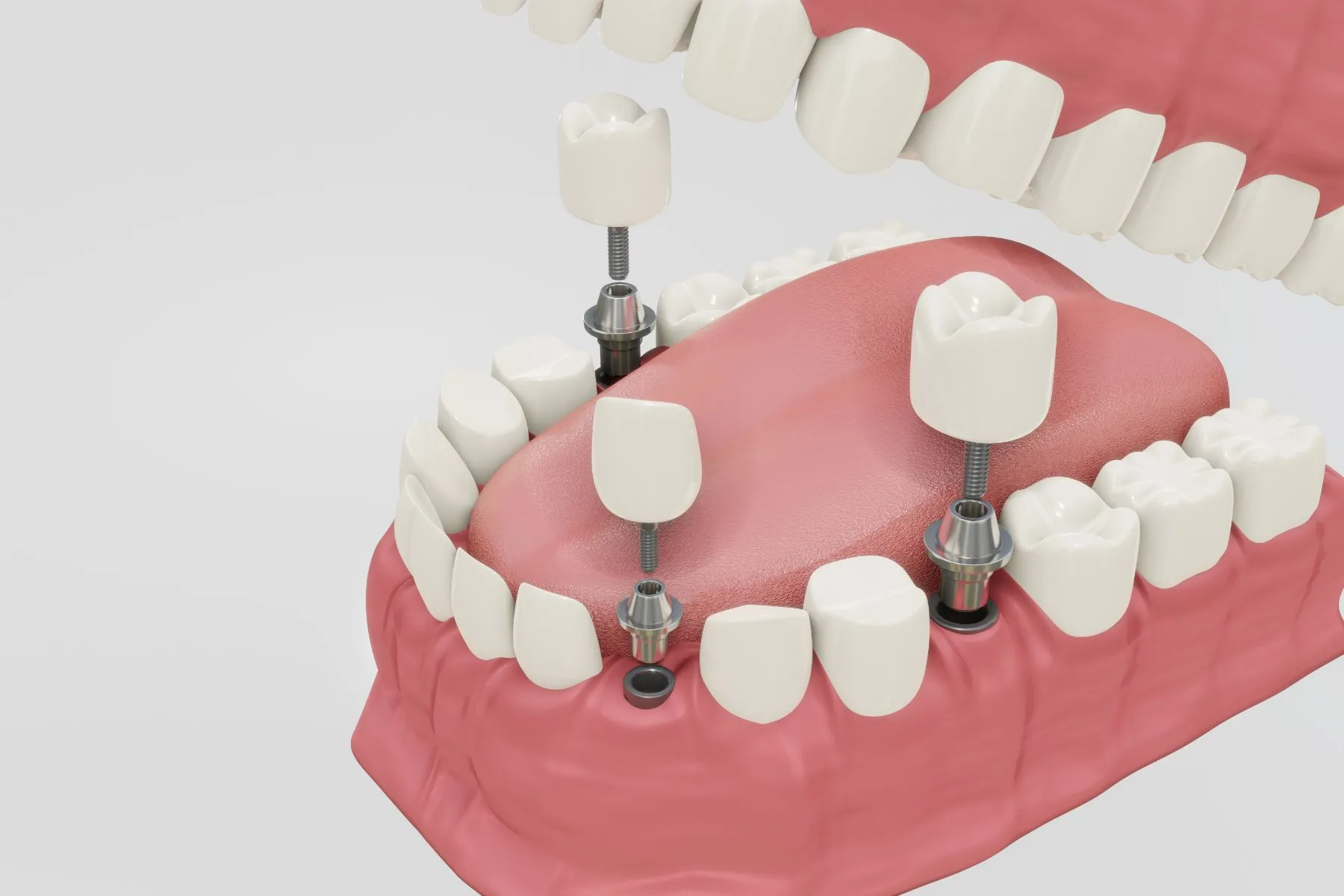Managing complications in dental implant surgery: What patients need to know
Dental implant surgery is increasingly recognized as an effective and long-lasting solution for those dealing with missing teeth. It offers not just aesthetic improvements, but also functional benefits that can significantly enhance one’s quality of life. However, like any surgical procedure, there are potential risks and complications that patients should be aware of before undergoing treatment.
This article aims to provide a comprehensive understanding of the common complications associated with dental implant surgery, strategies for managing these issues, and crucial information that every patient should know throughout their dental journey.
Understanding dental implant surgery
Dental implant surgery is a transformative procedure that has revolutionized the way we address tooth loss. At its core, this intricate process involves the precise placement of a titanium post into the jawbone, which serves as an artificial tooth root. This post is not just a temporary solution; it is designed to integrate seamlessly with the bone through a remarkable biological process known as osseointegration. During osseointegration, the titanium post bonds with the surrounding bone tissue, creating a stable and durable foundation that can support various dental restorations, such as crowns, bridges, or even full dentures.
The overall success rate of dental implants is impressively high, often exceeding 95% in many cases. This statistic highlights the effectiveness of the procedure and the advancements in dental technology and materials that have improved outcomes over the years. However, it’s important for patients to understand that, like any surgical procedure, dental implants carry potential risks and complications. Issues such as infection, nerve damage, or failure of the implant to properly integrate with the bone can arise.
Given these possibilities, it becomes essential for patients to be well-informed about what to expect before, during, and after the surgery. Comprehensive pre-surgical consultations and discussions with their dental professionals can help clarify any concerns and provide valuable insights into the overall process. Understanding the benefits, potential risks, and necessary aftercare can empower patients, allowing them to make informed decisions regarding their dental health.

Common complications of dental implant surgery
While many patients enjoy successful outcomes from their dental implant procedures, complications can arise. Here are some of the most common issues:
1. Infection
Infection is perhaps the most frequent complication following dental implant surgery. It can manifest as:
– Redness or swelling around the implant site
– Pain or tenderness
– Pus or drainage from the area
– Fever or chills
An infection not only causes discomfort but can also jeopardize the success of the implant. To reduce the risk, it’s crucial to follow your dentist’s pre-operative and post-operative care instructions carefully. Maintaining good oral hygiene and attending all follow-up appointments will play a vital role in your recovery.
2. Nerve damage
Another potential complication is nerve damage, which can occur if the implant is positioned too close to a nerve. Symptoms may include.
– Tingling or numbness in the lips, gums, or chin
– Pain radiating in the jaw or face
These sensations can be alarming, but it’s important to remember that many instances of nerve damage are temporary. If you notice any unusual sensations, reach out to your dentist immediately to discuss your symptoms.
3. Sinus issues
For patients receiving implants in the upper jaw, complications related to the sinuses may arise. If an implant protrudes into the sinus cavity, it can lead to:
– Sinus infections
– Chronic sinusitis
To mitigate these risks, your dentist might recommend a sinus lift procedure, which adds bone to the upper jaw, creating a safe space for the implants.
4. Bone loss
Bone loss can be a concern for patients with insufficient bone density or volume to support the implant. This can lead to.
– Implant failure
– The need for additional procedures, such as bone grafting
A thorough evaluation of your bone health before surgery is essential. Your dentist may suggest a bone graft if needed, to ensure that your implants have the necessary support.
5. Implant failure
Though rare, dental implants can fail for various reasons, including:
– Infection
– Insufficient bone density
– Poor oral hygiene practices
– Underlying health conditions, such as diabetes
If you experience implant failure, your dentist will work with you to determine the cause and discuss possible solutions.
What to expect during the recovery process
Understanding what to expect after dental implant surgery can help you manage your recovery effectively and ensure the best possible outcome. Here are some key aspects to consider.
1. Pain management
Experiencing some discomfort following dental implant surgery is completely normal and expected. Your dentist understands that recovery can be challenging, which is why they will likely prescribe pain medication tailored to your specific needs. This medication is designed to help you effectively manage any post-operative pain you may encounter.
It’s important to follow your dentist’s instructions regarding the prescribed dosage and timing closely. Adhering to these guidelines will not only help you stay comfortable but will also promote a smoother recovery process. Remember, everyone’s healing journey is unique, so don’t hesitate to reach out to your dental team if you have any questions or concerns during your recovery. We’re here to support you every step of the way, ensuring you feel as comfortable and informed as possible throughout your healing experience.
2. Swelling and bruising
Swelling and bruising are common side effects that many patients experience after dental implant surgery. It’s important to understand that some degree of swelling around the surgical site is normal and typically occurs within the first few days following the procedure. This reaction is part of your body’s natural healing process.
To help minimize swelling, we recommend applying ice packs to the affected area. Doing this in intervals—such as 15 to 20 minutes on, followed by a break—can be particularly effective. Most of the swelling should begin to subside within a few days, allowing you to start feeling more comfortable.
As you recover, keep in mind that every patient’s healing timeline can vary. If you notice excessive swelling, pain, or any other unusual symptoms, please don’t hesitate to reach out to our dental team. We’re here to provide guidance and support, ensuring your recovery goes as smoothly as possible. Your well-being is our top priority, and we are committed to helping you achieve the best outcome following your dental implant surgery.
3. Dietary adjustments
In the initial stages of your recovery after dental implant surgery, adhering to a soft diet is highly advisable. This approach not only promotes healing but also helps you avoid unnecessary discomfort. Foods that require minimal chewing, such as yogurt, smoothies, and mashed potatoes, are excellent choices during this period. These options provide essential nutrients while being gentle on your surgical site.
By focusing on soft foods, you can maintain proper nutrition without putting undue stress on the healing area. It’s important to listen to your body and give yourself the time you need to recover fully. As your healing progresses, you can gradually reintroduce firmer foods into your diet.
If you have any questions about what to eat or need further dietary recommendations, please feel free to reach out to our dental team. We’re here to support you through every step of your recovery journey, ensuring you feel informed and comfortable as you work towards a successful outcome. Your health and well-being are our top priorities.
4. Oral hygiene
Maintaining good oral hygiene is absolutely critical in preventing infection and ensuring a smooth recovery after your dental implant surgery. In the initial days following the procedure, it’s essential to brush your teeth gently, taking care to avoid the surgical area. This will help protect the sensitive tissues and allow for optimal healing.
Your dentist will provide you with specific guidelines tailored to your individual situation, including when it’s safe to resume your normal oral care routine, such as flossing. Following these instructions is vital, as proper care will significantly contribute to your recovery and the long-term success of your implants.
We understand that adjusting your routine can be challenging, but remember that these precautions are in place to safeguard your healing process. If you have any questions or concerns about your oral hygiene practices during recovery, please don’t hesitate to reach out to our team. We are here to guide you and ensure that you feel confident in caring for your oral health as you recover. Your well-being is our utmost priority, and we are committed to supporting you every step of the way.
Preventive measures to reduce complications
While it may not be possible to eliminate all risks, there are several proactive steps patients can take to minimize their chances of experiencing complications during dental implant surgery.
1. Choose a qualified dentist
The experience and skill of your dentist play a crucial role in the success of your dental implant procedure. Look for a dentist who specializes in implantology and has a proven track record of successful outcomes. It’s completely acceptable to ask about their qualifications and experience before committing to treatment.
2. Comprehensive evaluation
Before undergoing the surgery, ensure you receive a thorough evaluation. This includes imaging studies such as X-rays or CT scans to assess your dental health and bone structure. This assessment will help your dentist develop a personalized treatment plan tailored to your needs and identify any potential complications in advance.
3. Follow pre-operative instructions
Following your dentist’s pre-operative instructions is essential for minimizing risks. These instructions may include:
– Avoiding certain medications or supplements
– Quitting smoking, which can impair healing
– Preparing for a soft diet prior to the procedure
4. Maintain oral hygiene
Proper oral hygiene before and after surgery is crucial for preventing infection and ensuring successful integration of the implant. Brush and floss regularly, and consider using an antibacterial mouthwash as directed by your dentist.
5. Regular follow-up visits
Attending follow-up appointments is vital for monitoring your healing progress. These visits allow your dentist to address any concerns that may arise and ensure that your implant is integrating properly with the bone.
Benefits of dental implants
Dental implants offer numerous advantages, making them an excellent choice for many patients. Here are some of the key benefits.
– Natural appearance: Implants look and feel like natural teeth, enhancing your smile and confidence.
– Improved function: Unlike dentures, which can slip or shift, implants provide a stable solution that allows for normal eating and speaking.
– Longevity: With proper care, dental implants can last a lifetime, making them a cost-effective long-term solution.
– Bone preservation: Implants stimulate the jawbone, helping to prevent bone loss that often occurs with missing teeth.
– Enhanced oral health: Unlike traditional bridges, which require altering adjacent teeth, implants preserve surrounding teeth and improve overall oral health.
Frequently asked questions
1. How long does it take for dental implants to heal?
The healing process can vary from patient to patient. Generally, it takes about three to six months for the implant to fully integrate with the jawbone. Your dentist will provide a more accurate timeline based on your individual situation.
2. Are dental implants painful?
Patients may experience discomfort during and after the procedure. However, dental implant surgery is typically performed under local anesthesia, minimizing pain during the surgery. Post-operative pain can usually be managed effectively with prescribed medications.
3. What should I do if I experience complications?
If you notice any signs of complications, such as persistent pain, swelling, or infection, it is important to contact your dentist immediately. Early intervention can prevent more serious issues and improve the chances of a successful outcome.
4. Can I smoke after getting dental implants?
Smoking can significantly increase the risk of complications, including infection and implant failure. It is advisable to quit smoking before the procedure and avoid it during the recovery period to enhance healing.
5. How long do dental implants last?
With proper care and maintenance, dental implants can last a lifetime. Regular dental check-ups and good oral hygiene practices are crucial for ensuring the longevity of your implants.






